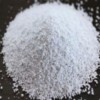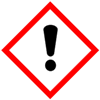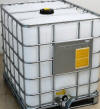Search for the supplies that you need here:
DMF Support and Documentations Available | |
 WHO-GMP Certified Good Manufacturing Practice Certified by World Health Organization |  WC, Written Confirmation for Active Substance to be imported into European Union (EU). |
Selenium Glycinate or Selenium Amino Acid Chelate or Selenium Glycine Complex SDS of Manufacturers
Anmol Chemicals is a manufacturer supplier exporter of Selenium Glycinate or Selenium Amino Acid Chelate or Selenium Glycine Complex and it offers materials as per IP BP EP Ph Eur USP NF JP FCC Food Grade as per the the latest monograph at best prices. Anmol Chemicals Group, established in 1976, is the pioneer manufacturer of Specialty Chemicals, Pharmaceutical Excipients, Some API, Food Chemicals in India. Anmol Chemicals Group has manufacturing facilities spread across Western India, representatives in Houston, Chicago USA and Dubai, UAE. We also have toll manufacturing units for processing chemicals in a few countries around the world. We make IP, BP, EP, USP, NF, Ph. Eur., JP, FCC or Food Grade, Analytical Reagent Grade, LR or Laboratory Reagent Grades and Pure Grades of various chemicals. All our items are analyzed to meet the required standards. We can supply the product in grams for your laboratory trial and in tons for your plant scale jobs.
We manufacture Bulk Drugs / API, Excipients, Pharmaceuticals (IP BP USP NF Ph Eur EP JP), Specialty Chemicals (Pure/Reagent), Mineral Fortifiers (FCC). Our manufacturing facility is FDA approved and GLP, cGMP, ISO9001, ISO14001, ISO/IEC 17025, ISO22000, FSSC 22000, ISO45001, FSSAI, Kosher, HALAL, COPP, WHO-GMP certified and Written Confirmation (WC) is available. Solid materials can be customized for particle size, shape, and bulk density. We observe WHO Good Manufacturing Practices and Good Laboratory Practices. We are a government-recognized STAR Export House and "Authorised Economic Operator (AEO)" per Indian Customs.
All technical documents and DMF support available.

Synonyms: Selenium Glycinate or Selenium Amino Acid Chelate or Selenium Glycine Complex
CAS Number: NA
Selenium Glycinate or Selenium Amino Acid Chelate SDS, Safety Data Sheet
MSDS Sheet, Material Safety Data Sheet 16-Nov-20
1. Product Identification
Product Name & Other Names: Selenium Glycinate or Selenium Amino Acid Chelate
CAS No.: Not available
Relevant uses and uses advised against (if any): Industrial use only.
Supplier: As per letterhead.
2. Hazards Identification
GHS, Globally Harmonized System Classification in accordance with 29 CFR 1910
Classification according to Regulation (EC) No 1272/2008
Acute toxicity, Oral Category 4, H302
Acute toxicity, dermal Category 4, H312
Acute toxicity, inhalation Category 4, H332
Hazardous to the aquatic environment, acute hazard Category 2, H401
Labeling according Regulation (EC) No 1272/2008
GHS Label Elements  Irritant |
Signal Words: Warning
Hazard statements:
H302: Harmful if swallowed.
H312: Harmful in contact with skin.
H332: Harmful if inhaled.
H401: Toxic to aquatic life.
Precautionary statements:
P261: Avoid breathing dust/fume/gas/mist/vapors/spray.
P262: Do not get in eyes, on skin, or on clothing.
P264 Wash skin thoroughly after handling.
P270 Do not eat, drink or smoke when using this product.
P271: Use only outdoors or in a well-ventilated area.
P273: Avoid release to the environment.
P280: Wear protective gloves/protective clothing/eye protection/face protection.
P314: Get Medical advice/attention if you feel unwell.
P330: Rinse mouth.
P301+P312: IF SWALLOWED: Call a POISON CENTER or doctor/physician if you feel unwell.
P302+352: IF ON SKIN: Wash with soap and water.
P332+313: If skin irritation occurs: Get medical advice/attention.
P304+340: IF INHALED: Remove victim to fresh air and keep at rest in a position comfortable for breathing.
P305+P351+P338 IF IN EYES: Rinse cautiously with water for several minutes. Remove contact lenses, if present and easy to do. Continue rinsing.
P337+P313 If eye irritation persists: Get medical advice/ attention.
P330: Rinse mouth.
Classification according to EU Directives 67/548/EEC or 1999/45/EC:
Hazard Symbol:
Xn Harmful
Risk Phrases:
R20/21/22 Harmful by inhalation, in contact with skin and if swallowed.
R51 Toxic to aquatic organisms.
General comments on selenium chemicals:
Carcinogenic Effects: Classified 3 (Not classifiable for human.) by IARC [Sodium selenite].
Mutagenic Effects: Mutagenic for mammalian somatic cells. [Sodium selenite]. Mutagenic for bacteria and/or yeast. [Sodium selenite].
Teratogenic Effects: Classified POSSIBLE for human [Sodium selenite].
Developmental Toxicity: Classified Reproductive system/toxin/female, Reproductive system/toxin/male [POSSIBLE] [Sodium selenite].
The substance may be toxic to blood, kidneys, liver, skin, central nervous system (CNS). Repeated or prolonged exposure to the substance can produce target organs damage.
Inhalation: This material is a dust or may produce dust. May cause respiratory tract (nose, throat, airways), and mucous membrane irritation with coughing, sneezing, breathing difficulty and headache. Breathing small amounts of this material during normal handling is not likely to cause harmful effects. Breathing in large amounts of this material may be harmful. Prolonged or repeated inhalation of selenium dust may cause bronchitis.
Ingestion: Swallowing small amounts of this material during normal handling is not likely to cause harmful effects. Swallowing large amounts may be harmful. Over-ingestion of Selenium may cause gastrointestinal upset with nausea, vomiting, and diarrhea, garlic like odor of the breath and sweat, metallic taste. Over-ingestion of selenium may be harmful or fatal. While selenium in the diet is essential for proper nutrition, long-term ingestion of high amounts may cause gastrointestinal tract and nervous system disturbances (giddiness, lassitude, irritability), breathing difficulty (dyspnea), skin sores, and yellowish skin, pallor, loss of hair & nails and decayed or spotted teeth. In some individuals, nervous system effects may progress to numbness, convulsions, and paralysis. Overexposure may cause anemia, kidney damage, and liver damage. Acute selenium poisoning is potential lethal due to cardiac failure and/or pulmonary edema.
3. Composition/Information on Ingredients
Product Name & Other Names: Selenium Glycinate or Selenium Amino Acid Chelate
CAS No.: Not available
4. First Aid Measures
Always seek medical attention after first aid measures are provided.
Inhalation: If inhaled, remove to fresh air. If not breathing, give artificial respiration. If breathing is difficult, give oxygen. Get medical attention.
Ingestion: Give large amounts of water to drink. Never give anything by mouth to an unconscious person. Get medical attention.
Skin Contact: Immediately flush skin with plenty of water for at least 15 minutes. Remove contaminated clothing and shoes. Get medical attention. Wash clothing before reuse. Thoroughly clean shoes before reuse.
Eye Contact: Check for and remove any contact lenses. Immediately flush eyes with running water for at least 15 minutes, keeping eyelids open. Cold water may be used. Get medical attention.
5. Fire Fighting Measures
Fire: Not classed as flammable. Slightly flammable to flammable in presence of heat. Non-flammable in presence of shocks. Slightly explosive in presence of open flames and sparks. Non-explosive in presence of shocks.
Fire Extinguishing Media: Dry chemical, foam, or carbon dioxide. Do not use a solid stream of water. Water spray may be used to keep fire exposed containers cool.
Special Information: In the event of a fire, wear full protective clothing and NIOSH-approved self-contained breathing apparatus with full face piece operated in the pressure demand or other positive pressure mode. At high temperatures under fire conditions, it may produce toxic or irritating fumes. Fire-extinguishing work is done from the windward and the suitable fire-extinguishing method according to the surrounding situation is used.
6. Accidental Release Measures
Personal precautions, protective equipment, and emergency procedures: Avoid breathing dust/fumes/gas/mist/vapors/spray. Ensure adequate ventilation. Use individual protective equipment (waterproof boots, suitable protective clothing, safety glasses, etc.). Prevent any contact with hot surfaces. Do not approach facing the wind.
Environmental precautions: Do not let the product enter drains, soil, or water sources.
Methods and materials used for containment Cleanup procedures and Storage:
Small Spill: Pick up, or shovel and place in an appropriate waste disposal container. Finish cleaning by spreading water on the contaminated surface and dispose of according to local and regional authority requirements.
Large Spill: Contain spilled material. Cover with an inert, non-combustible absorbent material, (e.g. sand, earth, diatomaceous earth, vermiculite). Keep away from heat. Keep away from sources of ignition. Do not touch spilled material. Use water spray to reduce vapors. Prevent entry into sewers, basements, or confined areas; dike if needed. Eliminate all ignition sources. Stop leak if without risk. Sweep and shovel and place in an appropriate waste disposal container. Keep in suitable, closed containers for disposal. Finish cleaning by spreading water on the contaminated surface and dispose as per legal requirement.
7. Handling and Storage
Precautions for safe handling: Apply according to good manufacturing and industrial hygiene practices. Ensure proper ventilation. Wash thoroughly after handling. Do not drink, eat, or smoke while handling. Avoid contact with skin, eyes, and clothing. Minimize dust generation. Avoid breathing dust/fumes/gas/mist/vapors/spray. Keep container tightly closed. Avoid ingestion and inhalation. Use individual protective equipment (waterproof boots, suitable protective clothing, safety glasses, etc.).
Conditions for safe storage, including any incompatibilities: Store in cool, dry, and ventilated area away from heat sources and protected from sunlight in tightly closed original container. Keep air contact to a minimum. Do not leave the material container open. Store protected from heat, sparks and ignition sources and incompatible materials. Avoid inhalation of dust/mist/vapor. Do not store with incompatible materials like oxidizing materials and acids.
8. Exposure Controls/Personal Protection
Airborne Exposure Limits: TWA: 10 (mg/m3). Consult local authorities for acceptable exposure limits.
Ventilation System: A system of local and/or general exhaust is recommended to keep employee exposures as low as possible.
Personal Respirators (NIOSH Approved): ;For conditions of use where exposure to the substance is apparent and engineering controls are not feasible, consult an industrial hygienist.
Skin Protection: Wear impervious protective clothing, including boots, gloves, lab coat, apron or coveralls, as appropriate, to prevent skin contact.
Eye Protection: Use chemical safety goggles and/or a full face shield where splashing is possible. Maintain eye wash fountain and quick-drench facilities in work area.
Other Control Measures: Maintain good housekeeping in work area. Dust deposits on floors and other surfaces may pick up moisture and cause the surfaces to become slippery and present safety hazards. Handle in accordance with good industrial hygiene and safety practice.
9. Physical and Chemical Properties
Appearance: A fine, free flowing spray dried light-yellow to cream powder.
Odor: Not available.
Odor threshold: Not available.
pH: Not available.
Relative density: Not available.
Melting point/freezing point: Not available.
Initial boiling point and boiling range: Not available.
Flash point: Not available.
Auto-ignition temperature: No information found.
Decomposition temperature: No information found.
Upper/lower flammability or explosive limits: No information found.
Vapor pressure: No information found.
Vapor density: No information found.
Evaporation rate: No information found.
Flammability (solid, gas): No information found.
Partition coefficient: n-octanol/water: No information found.
Solubility(ies): Soluble in water.
Viscosity: No information found.
10. Stability and Reactivity
Stability: Stable under ordinary conditions of use and storage.
Hazardous Decomposition Products: Carbon dioxide, carbon monoxide, nitrogen oxides, selenium oxides and fumes may form when heated to decomposition.
Hazardous Polymerization: None reported.
Incompatibilities: ;Acids, oxidizing agents.
Conditions to Avoid: Heat, flames, dust generation, ignition sources and incompatibles.
11. Toxicological Information
LD50 Oral – Rat: Not available.
Carcinogenic Effects: Classified 3 (Not classifiable for human.) by IARC [Sodium selenite].
Mutagenic Effects: Mutagenic for mammalian somatic cells. [Sodium selenite]. Mutagenic for bacteria and/or yeast. [Sodium selenite].
Teratogenic Effects: Classified POSSIBLE for human [Sodium selenite].
Developmental Toxicity: Classified Reproductive system/toxin/female, Reproductive system/toxin/male [POSSIBLE] [Sodium selenite].
Please see section 2.
12. Ecological Information
Results of PBT and vPvB assessment: No information found.
Environmental Fate: Not available.
Toxicity to fish LC50 - Lepomis macrochirus (Bluegill): Not available.
Environmental Toxicity: The LC50/96-hour values for fish are from 10 to over 100 mg/l. This material may be toxic to aquatic life.
Persistence and Degradability: No information found.
Bioaccumulation/ Accumulation: No information found.
Mobility: No information found.
13. Disposal Considerations
Whatever cannot be saved for recovery or recycling should be managed in an appropriate and approved waste disposal facility.
14. Transport Information
DOT USA, TDG Canada & ADR/RID Europe: Not controlled.
IATA/ ICAO & IMDG/IMO: Not controlled.
15. Regulatory Information
USA:
SARA 311/312: Please see section 2.
16. Other Information
Disclaimer:
**************************
Our company provides this MSDS sheet in good faith but makes no representation as to its comprehensiveness or accuracy. This SDS sheet is intended only as a guide to the appropriate precautionary handling of the material by a properly trained person using this product. The above information has been compiled from various sources and has the possibility of discrepancy and being out-dated information. Individuals receiving the information must exercise their independent judgment and do further search in determining its appropriateness for a particular purpose. In no case shall our company be liable to loss or damages by the product user.
**************************
Keywords: Selenium Glycinate or Selenium Amino Acid Chelate or Selenium Glycine Complex GMP IP BP Ph Eur EP USP Analytical Reagent FCC Food Grade Manufacturer Supplier Exporter Monograph Uses Chemical Molecular Formula Weight.



Manufacturer Supplier Exporter
ANMOL CHEMICALS Private Limited
Representatives in Houston, Chicago and New York, USA
TEL: (OFF) +91 22 23726950, +91 22 23774610, +91 22 23723564
Taloja Navi Mumbai, Banglore, INDIA
e-mail: info@anmol.org
Copyright and Usual Disclaimer is Applicable
Last updated 22-oct-25
Exporters to USA, Canada, UAE, Kuwait, Qatar, Gautemala, Tunisia, Europe, South Africa, Bangladesh, Sri Lanka, Tanzania, Kenya, Egypt, Iraq, Turkey, Israel, Vietnam, Nigeria, Uganda, Brazil, Chile, Argentina, Dubai, UAE, Saudi Arabia, Cameroon, Mexico, Brazil, Chile, Argentina, Korea, Thailand, Malaysia, Indonesia, Jakarta, Australia, China, Germany, France, etc.
Representatives in New York, Houston - Texas, Chicago - Illinois, Los Angeles.
All products are Sold for Industrial and Laboratory Use only.
Fast Selling IP BP Ph Eur EP USP NF JP Analytical Reagent FCC Food Grades of Chemicals by Anmol Chemicals
Ammonium Persulfate --- Acetic Acid Glacial --- Aluminum Chloride --- Ammonium bicarbonate --- Benzyl Alcohol --- Butylated Hydroxyanisole --- Butylated Hydroxytoluene --- Boric Acid --- Calcium Butyrate --- Calcium Chloride --- Calcium Hydroxide --- Calcium Lactobionate --- Calcium Saccharate --- Carbamide Peroxide --- Calcium Oxide --- Calcium Sulfate --- Chromic Chloride --- Fumaric Acid --- Magnesium Butyrate --- Magnesium Chloride --- Magnesium Sulfate --- Malic Acid --- Maleic Acid --- Manganese Chloride --- Manganese Sulfate --- Octyldodecanol --- Oleic acid --- Phenylethyl Alcohol --- Propylene Carbonate --- Potassium Hydroxide Pellets --- Potassium Alum --- Selenious Acid --- Sodium Acetate --- Sodium Bromate --- Sodium Selenite --- Sodium Perborate --- Sodium Hydroxide --- Sodium Sulphate --- Sodium Sulfide --- Sodium Thiosulfate --- Urea --- Zinc Chloride --- Zinc Sulphate ---


















